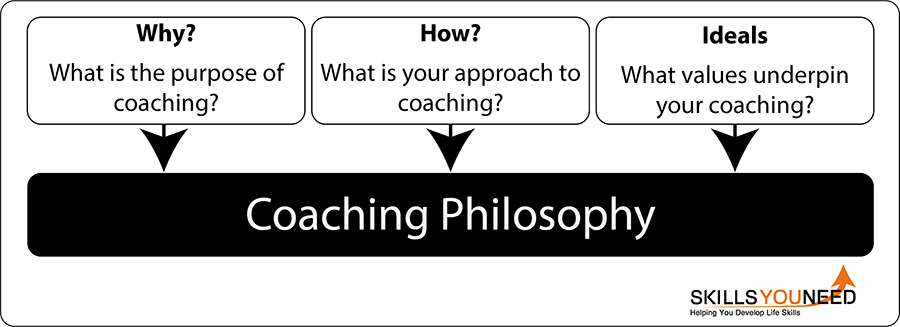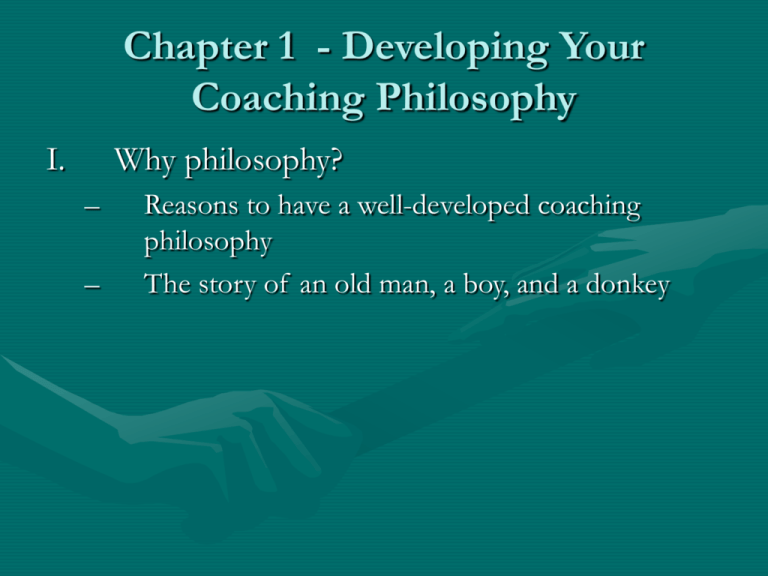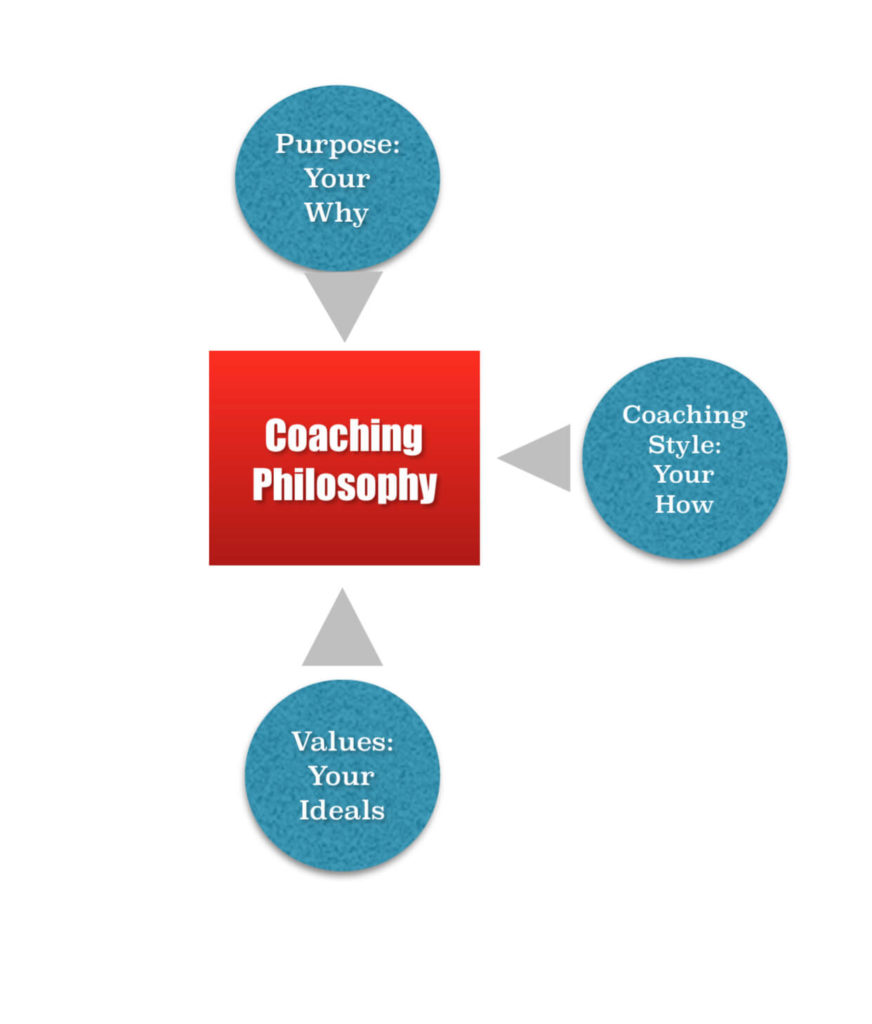The Key to Developing a Coaching Philosophy Is
Open communication is critical between the coach and the athlete and among the athletes. The section on the development of coaching philosophy begins by addressing Waltons 1992 notion of the great philosopher coach and then critically examines the development of a coaching philosophy over time.

Developing Your Own Coaching Philosophy Coaching Philosophy Coaching Program
The identity your Coach creates can leave a tremendous impact in you as a player and one that can form your ideas of a coaching philosophy in later life.

. Scott Walker discusses why establishing a coaching philosophy is key no matter what level of hockey you are coaching. Focus on the big picture. Ensure the principles remain valued by the coach.
The key to developing a coaching philosophy is. Martens 2004 indicated that a sound philosophy is the key to successful coaching and to the provision of positive sport experiences. He proposed that the three central elements of a coaching philosophy are the relative roles of winning development and fun.
Question 3 Those in the coaching profession face few difficult decisions and ethical dilemmas. The coaching style most difficult to implement in terms of individualized coaching is. The 5 Steps are.
You can develop your coaching philosophy by following these five steps. Efforts focus on the future skill of the players. Philosophical considerations become important because coaches have to decide whether to develop general athleticism first and sport-specific athleticism second.
So when it comes to being a successful sports coach a coaching philosophy is a must. Build and nurture relationships with athletes. That entails sharing your rules or regulations tryout policy key factors to success defining success expectations for how parents interact with coaches etc with players parents.
A coaching philosophy is something that all coaches should spend some time reflecting on and developing. The key to developing a coaching philosophy is Select one. For developing your coaching philosophy.
Involve your assistant coaches. Similarly Vealey 2005 operationalized. When developing your coaching philosophy it is of the utmost importance that it is something you stand for.
Make the philosophy congruent with societys values d. They can be useful for making decisions and explaining those decisions to others. Our sacrifices are huge our ability to inspire profound and our background in coaching established.
Personal values and develop a coaching philosophy that matches what you believe. So understanding yourself is the key to developing a complete philosophy. The coach should encourage everyone to express themselves honestly about team standards feelings and expectations.
You may hear the coach state their goal is to help build the best high school team in four six etc. The key for a coach to develop a philosophy of coaching is to learn more about himself. For instance playing time and the playing of injured players are two areas that a philosophy can provide direction on.
This guide outlines the steps that need to be taken to reach set objectives crucially underpinned by a set of values and personal style. Understand yourself and determine what is important to you. What is your Sport Coaching.
Understanding what drives you what you value most and the underlying reasons why will lay a foundation upon which a strong coaching. The key is to recognize why you are holding a parent meeting. I use development to mean improvement of individual skills teamwork and game-time strategies.
A Identify your values. The reason to evaluate a coaching philosophy is to Select one. 8 core principles in developing a coaching philosophy.
Question 20 It is important for coaches to teach ethical behavior in sport because models for. Knowing the sport d. Identify your coaching objectives.
B establish a belief sys- tem. Your coaching philosophy is something deeply personal something that ultimately stems from and applies to only yourself. As a coach it will benefit you to become a communicator and to recognize the needs of your team and balance those needs with yours.
Express your coaching philosophy publicly. Link your coaching philosophy to your coaching style. Learn from your own experiences Being a Coach is largely about being yourself and this means being authentic.
Define your coaching objectives. Question 2 A philosophy is defined as the beliefs or principles that guide actions. Two ways in which you as a coach can develop an athlete center coaching philosophy using the national standards for sport coaching domain 1 standard 1 managing athlete behaviors and clearly stating the coaching philosophy.
Make the philosophy inflexible c. Help athletes manage their stress. Using the former UCLA basketball coach John Wooden as an exemplar Martens 2004 notion that coaches do not begin their careers with.
Asked May 28 2020 in Philosophy Belief by. As a critical tool to impart understanding of the culture you keep in your program. Make sure the philosophy is not consistent with personal life-related principles b.
C de velop a personal mission statement. Coaches whose primary goal is development will likely exhibit the following actions. The coaching style characterized by giving direction providing instruction and disciplining when necessary while allowing the athletes to make decisions and assume responsibility is the.
Identify what is most important to you To develop your Sport Coaching Philosophy it is important to first have. Knowing the athletes b. May 21 2019 by Liz Carter.
Developing a Coaching Philosophy. This may come as a surprise but my overall coaching philosophy remains the same no matter what level the.

Chapter 1 Developing Your Coaching Philosophy

No comments for "The Key to Developing a Coaching Philosophy Is"
Post a Comment